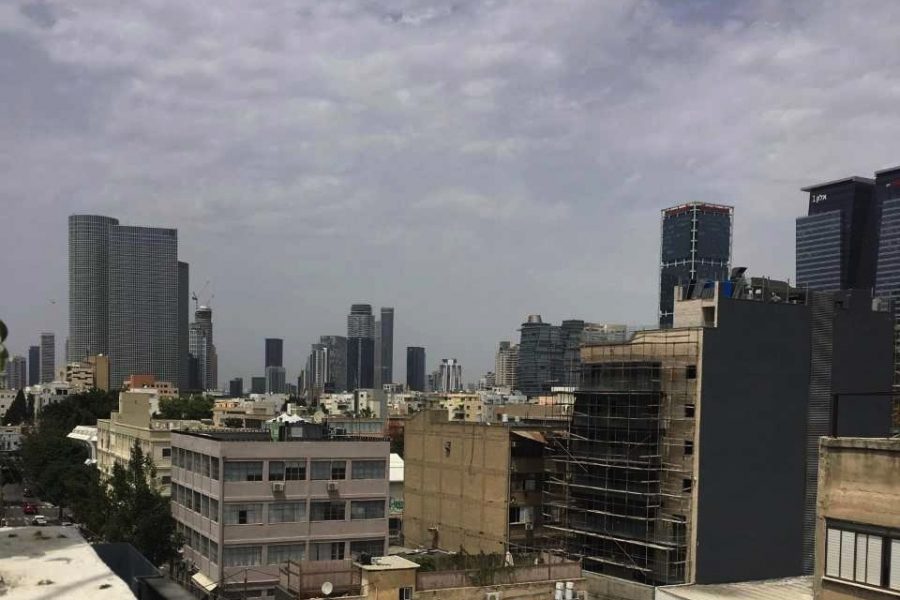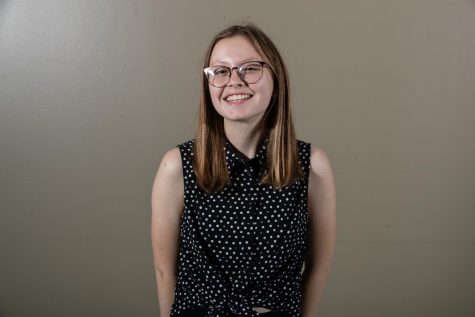Lotenschtein: Dispatches from Tel Aviv: Beginning with generosity and chaos
A DI reporter travels to Israel for a summer internship and begins to learn the ins and outs of bustling Tel Aviv.
A rooftop view of eastern Tel Aviv, Israel, is seen on Thursday. (Madison Lotenschtein/The Daily Iowan)
June 9, 2019
My taxi driver pulled out his phone and began checking his stocks while weaving in and out of traffic on the freeway that leads into central Tel Aviv. It’s like he knew that the jet lag would cloud my mind, causing me to not care that neither of us were paying attention to the road. I had just landed in Ben Gurion International Airport, ready to take on a foreign city and immerse myself in its culture.
I’d arrived in Israel, not to relax on vacation but to work a full time internship for the summer. Thanks to a program called Onward Israel, I am able to live and work in Tel Aviv as a content marketing intern at an online storytelling company. Onward Israel is a program that helps Jewish-American students find internships in Israel.
People come together to help a sister and/or brother out. It’s a funny catch phrase, for sure, but it’s an ideal that was the foundation of my upbringing and is prevalent in Israeli culture.
Part of a city’s (or country’s) culture is the language. But, it’s not just the national tongue that is spoken, it’s how that language — in this instance, Hebrew — is spoken. Hebrew is a biblical language that was resuscitated in 1948 for the fledgling state of Israel. Israelis now speak what is called modern Hebrew. The dialect, to most foreigners, sounds harsh and is almost identical to the outward Israeli attitude: blunt and straight to the point.
This is not always the case, as my co-workers at my internship have been nothing but friendly and welcoming. But there is no beating around the bush or hints of “fakeness,” which I have been unfortunate enough to have encountered in the States.
The Israelis’ openness and helpful features are a heartwarming sight for my “Iowa Nice” persona. A driver for Gett (like Uber, but for Israel) who was en route of taking me to my internship orientation, had become lost and began yelling to people passing by, asking where Moshe Dayan Road 66 was. In the States, people would have mistaken him as deranged, but in Israel, the passersby were more than willing to help him reach my destination. People come together to help a sister and/or brother out. It’s a funny catch phrase, for sure, but it’s an ideal that was the foundation of my upbringing and is prevalent in Israeli culture. I’ve met some of the kindest, most genuine people in Israel, and that is a statement I am willing to set in stone.
With its stunning beaches, restaurants, art scene, and nightlife, Tel Aviv has dominant traits of the affluent makeup of a metropolitan city. Beneath the bright lights and good people of the city, there are the shadows of some locals who love to take advantage of visiting Jewish-Americans. An easy way to not become another statistic of a theft-based crime is to simply be aware of your surroundings. A part of this advice ties into learning some basic Hebrew, a step that I am working on as I slowly wade into the absolute madness of Tel Aviv.
While I can’t see myself making aliyah — when Jews move from another country to Israel — I am beginning to understand why people make the trek to the Middle East. Tel Aviv is a city that allows people to innovate themselves and improve their lives and that of others. As I step off the bus and walk into the doors of my internship, I recognize the immense privilege I grasp to even have this opportunity, and I search for more of it at every corner of this urban desert that I hope to maneuver in the months to come.















